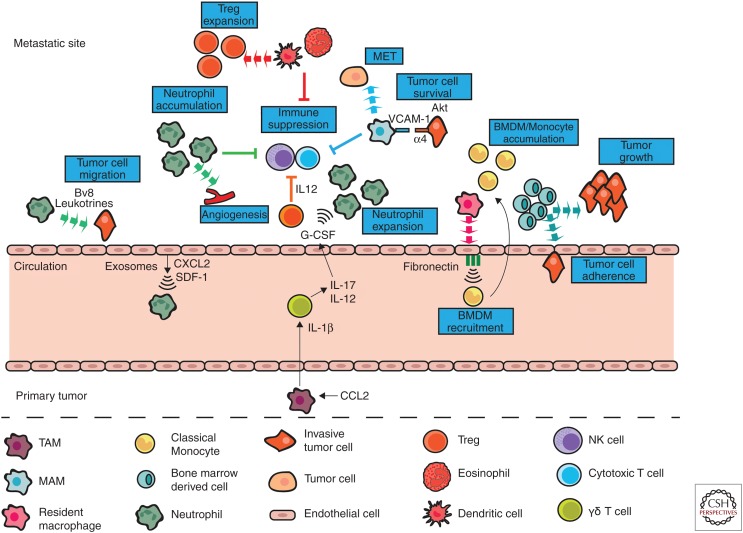Figure 4.
Myeloid cells promote tumor cell survival and growth at metastatic sites. Tumor-derived exosomes recruit neutrophils to metastatic sites by inducing CXCL2 and SDF-1 secretion by epithelial cells. Once recruited, neutrophils secrete Bv8 and leukotrienes, which enhance tumor cell migration into the tissue. Neutrophils also stimulate new blood vessel formation, which promotes growth of metastatic tumor cells by giving them access to nutrients and oxygen. Neutrophils, metastasis-associated DCs, eosinophils, and MAMs suppress antitumor NK and cytotoxic T-cell responses. Dendritic cells (DCs) and eosinophils also expand Treg populations leading to further suppression of antitumor immune responses. Monocytes (IMo) and BMDMs are recruited to sites of metastasis via resident macrophage-induced up-regulation of fibronectin on endothelial cells. IMos then differentiate into MAMs, which support tumor cell survival by inducing AKT expression in the tumor cells on binding of VCAM-1 to α4 integrins. MAMs also induce transition from a mesenchymal state to an epithelial one in the tumor cells thus allowing them to proliferate. Lastly TAM-derived IL-1β (released from the primary tumor into the circulation) instigates IL-17 and IL-12 production in circulating γδ T cells resulting in G-CSF-mediated neutrophil recruitment to metastatic sites and suppression of antitumor immune responses.

